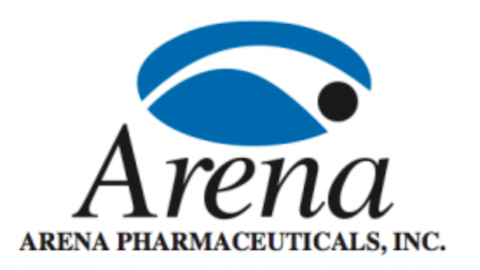Short interest in Arena Pharmaceuticals, Inc. (NASDAQ:ARNA) is 28.81% of its float. Shorts have 16.8 days to square their positions, and some of them are already covering, as shown by the 2.91% decrease in short interest. There is a short interest of 62.30 million shares, down from 64.17 million. The short interest ratio is 16.8 days, meaning that based on the average daily trading volume, it will take more than 16 days for short sellers to cover their positions.
The mystery objectors
A report was published in The Financial Times on April 21, 2013. The report talked of how DEA scheduling of Belviq is being held up due to a large number of anonymous people posting their objections with the DEA.
Belviq, and rival product Qsymia of VIVUS, Inc. (NASDAQ:VVUS), became the first obesity drugs to get FDA approval in more than a decade. There were concerns regarding both drugs, but as obesity has become a major issue, the regulator approved them. Qsymia got through with restrictive REMS, the FDA’s Risk Evaluation and Mitigation Strategy. Belviq, however, had to wait for the DEA’s ruling on the drug’s potential for abuse, for which the government agency gives a time window for filing comments. The process is usually completed within four to six months, but in Belviq’s case an unusually high number of comments were filed, which the DEA had to sift through, delaying the final ruling by 10 months.
The intriguing part is that out the 69 comments, 47 were positive and most of them were identified. However, 19 out of 22 negative comments were anonymous -the “mystery objectors.” This stirred up the belief that it is the handiwork of people with vested interests, such as short sellers.
Why short sellers will now have trouble
Another 30 days and the wait is over

The effective date will also bring in $65 million in milestone payments from Eisai, the Japanese company to which Arena Pharmaceuticals, Inc. (NASDAQ:ARNA) has granted exclusive rights for marketing and distributing Belviq in most of North and South America, including the United States, Canada, Mexico and Brazil. This is in addition to the milestone payment of $500,000 received from Eisai on submission of application for marketing approval from the Mexican regulators.
Q1 2013 Earnings
The news of withdrawal of the application for approval from Europe’s regulator was included in the Q1 2013 earnings report. While there was not much of a difference between Q1 2013 revenue ($2.4 million) as compared to the same quarter last year ($2.2 million), it was up 26% from Q4 2012 revenue. There was a substantial increase of 14% in general and administrative expenses on account of increases in salaries, audit and patent fees, but the net result was a reduction in net losses, which was down from $29.4 million, or $0.18 per share in Q1 2012, to $18.9 million, or $0.09 per share.
Arena Pharmaceuticals, Inc. (NASDAQ:ARNA) will sell Belviq to Eisai at a tiered purchase price–31.5% of Eisai’s net annual product sales and 36.5% on the portion above $750 million. It will also be eligible for $1.6 billion in purchase price adjustment payments on the basis of net sales of Belviq.
As of March 31, 2013, the company had $136.3 million in cash and cash equivalents, with another $65 million expected from Eisai. Once revenue from Belviq sales start coming in, it will further ensure the smooth progress of evaluation of Arena Pharmaceuticals, Inc. (NASDAQ:ARNA)’s pipeline candidates for pulmonary arterial hypertension and autoimmune diseases.
Developments on competitor Vivus’ front
A post-hoc analysis – looking at data for patterns that were not specified in the earlier studies of Qsymia – conducted by VIVUS, Inc. (NASDAQ:VVUS)’s M.D., Charles Bowden, shows that patients who lost 15% or more weight after 2 years on Qsymia had the greatest improvement in cardiovascular parameters such as systolic blood pressure and cholesterol (HDL) levels.

